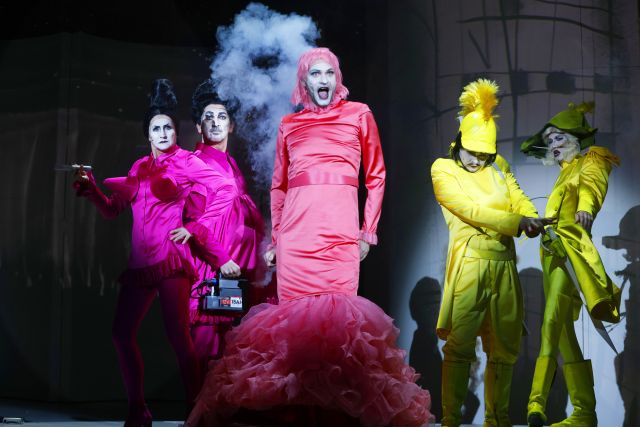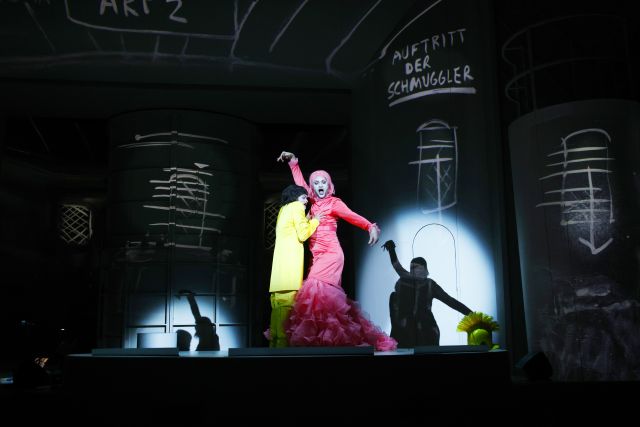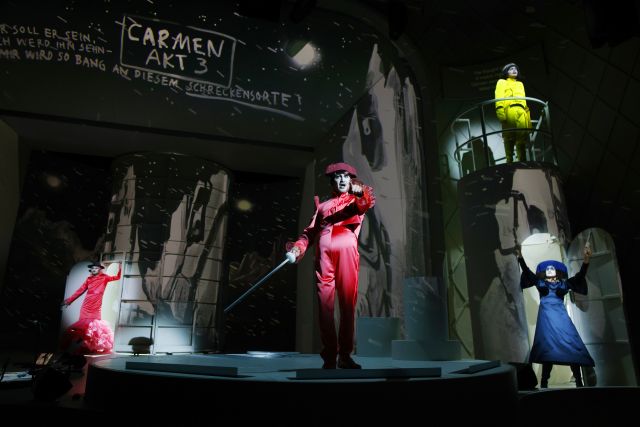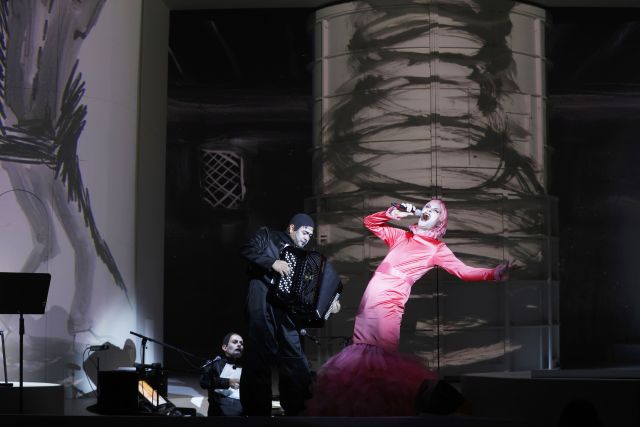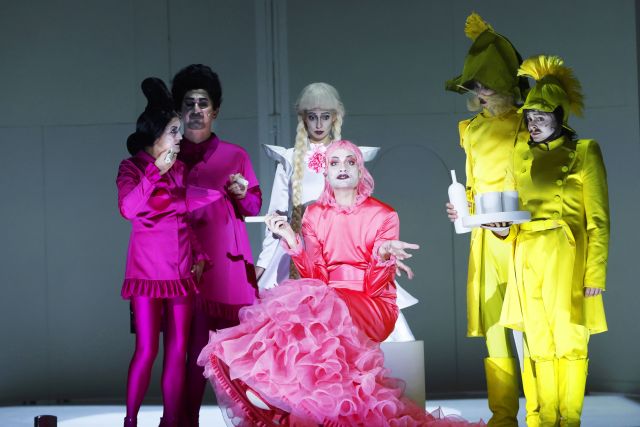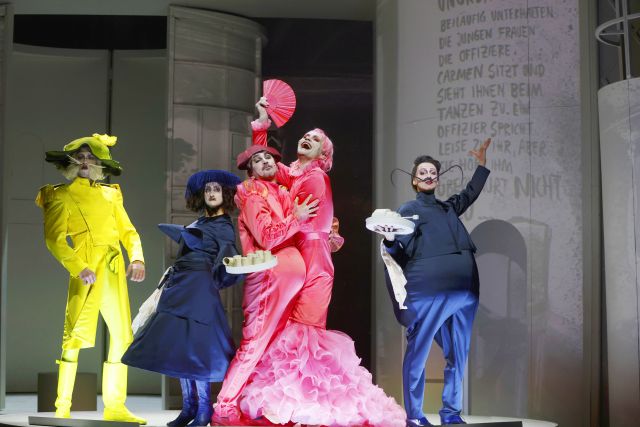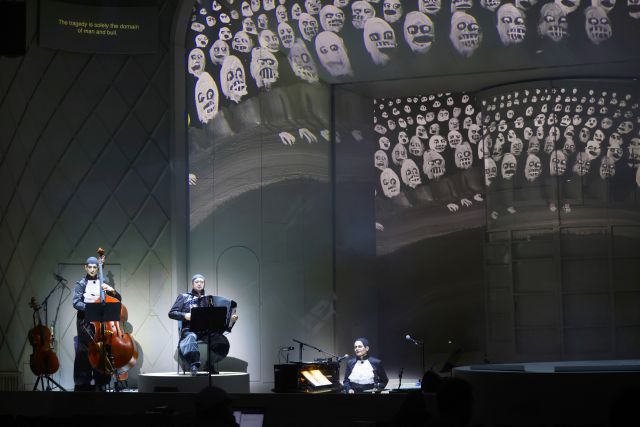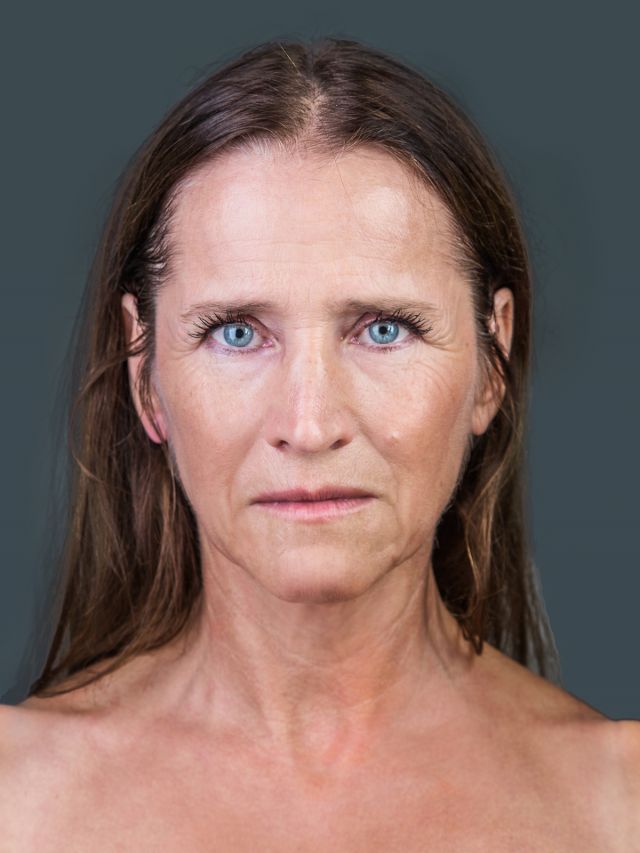Skip to main content
Carmen
»The Romani community has a toxic relationship with Carmen: one of our few icons to have endured throughout the centuries, she fulfills every stereotype that has ever circulated about us. She is viole ...
»The Romani community has a toxic relationship with Carmen: one of our few icons to have endured throughout the centuries, she fulfills every stereotype that has ever circulated about us. She is violent, rowdy, untamed, hot-blooded, passionate, thieving, dancing and singing her way into the beds of men with her black haired, femme fatale lack of morality. But we love her. She is a figure of resistance, a symbol of freedom from conformity, a rejection of the role of victim. And last but not least, the portrait of a woman who was ahead of her time.« Riah Knight
Ever since the premiere of Georges Bizet's opera in 1875, at the very latest, the titular heroine Carmen has been world-famous. Based on the novella of the same name by Prosper Mérimée, the librettists Henri Meilhac and Ludovic Halévy created a stirring tragic play about passion, love and power. In Seville, an attractive and self-assured Roma and factory worker named Carmen meets a soldier named Don José, whose fascination with her becomes obsessive. But Carmen refuses to let herself be tied down. When Don José feels his honour as a man has been tarnished, he murders her. The opera caused a scandal in 1875. And not only because of its realistic representation of the milieu of soldiers, workers, smugglers and flamenco dancers on the bourgeois stage. The title character herself, and her desire for freedom, in particular fascinated and provoked the audience at the same time, especially because she disrupted the patriarchal order of things. In the end, however, Carmen would become the most performed opera in the world because of the outstanding quality of its music and thrilling plot.
The production team, led by director Christian Weise, continues the tradition of musical theatre evenings at the Gorki by focusing on the genre of opéra-comique. A new arrangement re-traces the genres, cultural quotations and appropriations that Bizet incorporated into his music. In the process, Carmen becomes a queer-burlesque piece of musical theater which playfully re-examines the images, stereotypes and disguises inscribed in opera.
Watch the Trailer
Premiere 24/January 2025
Photo: Esra Rotthoff
Stage photos: Ute Langkafel
Video: Schnittmenge



